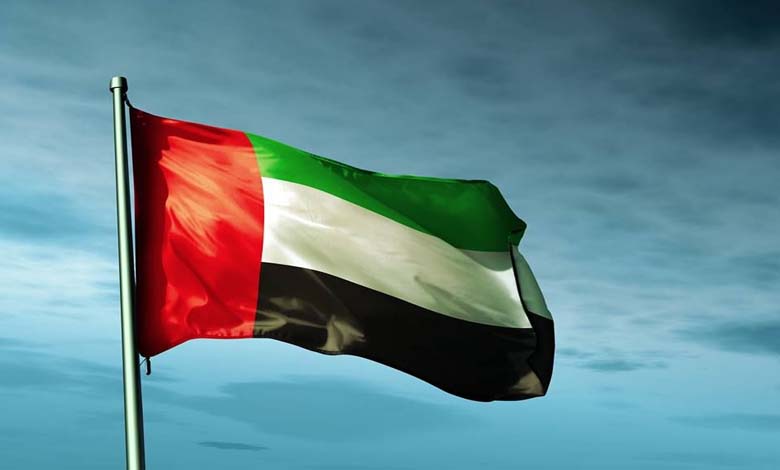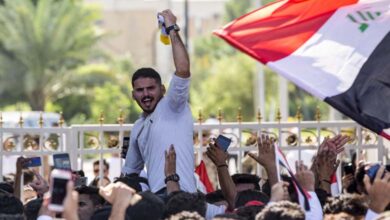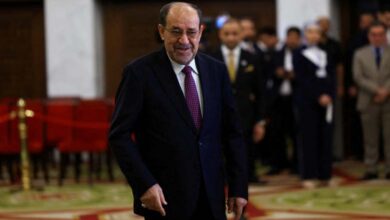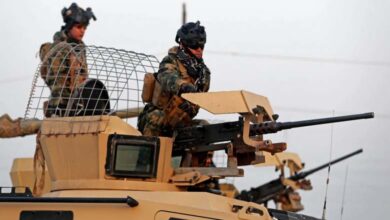United Nations Day 2025… the UAE as a global capital of peace

This Friday marks United Nations Day, as the United Arab Emirates continues cross-border and cross-continent initiatives to spread security, peace, and prosperity worldwide.
Emirati efforts and initiatives are recorded in the annals of humanity in letters of light for defusing multiple crises around the globe, advancing peace and tolerance, addressing humanity’s foremost challenges, and strengthening stability and prosperity across the planet—rightly establishing the country as a capital of peace.
On 24 October each year, the world celebrates United Nations Day, which this year
marks the 80th anniversary of the organization’s founding. The UN is the most comprehensive and representative international body, and since its inception it has played a pivotal role in promoting peace and human rights worldwide.
This year’s celebration is held under the theme “A symbol of hope for global unity,” which reflects the UAE’s approach of making human solidarity and international cooperation a core pillar of its domestic and foreign policies—politically, diplomatically, and humanitarianly.
Fruitful engagement
UN Day comes less than a month after an active and productive Emirati participation in the 80th session of the UN General Assembly, held from 22 to 29 September in New York, during which the UAE launched a number of initiatives and hosted several important events.
Led by Sheikh Abdullah bin Zayed Al Nahyan, Deputy Prime Minister and Minister of Foreign Affairs, the official delegation’s programme combined high-level meetings, international consultations, and specialized events. Topics ranged from Middle East peace and the two-state solution to combating hate and extremism, along with youth, environment, artificial intelligence, humanitarian action, and development cooperation—reflecting a sustained, balanced diplomatic presence throughout the week.
This momentum culminated in a statement delivered by UAE Minister of State Lana Zaki Nusseibeh before the UN General Assembly, outlining a comprehensive roadmap to address global crises, conflicts, and challenges.
Through this dynamic, the UAE affirms that its voice at the UN extends a national vision that treats diplomacy as an effective tool to craft global solutions balancing national ambition with international responsibility.
The UAE’s participation also presented a renewed model of human-centred diplomacy—combining the consolidation of peace and security, foresight in emerging technologies, support for humanitarian and development initiatives, and bridge-building with a wide array of international partners.
The UAE delegation joined UN member states, officials, and relevant partners in discussions focused on urgent global challenges and ways to strengthen collective international action to develop joint solutions, with special attention to threats to international peace and security.
Among the key events:
- The High-Level International Conference on the Peaceful Settlement of the Palestinian Question and implementation of the two-state solution
- A summit of Arab and Islamic leaders with U.S. President Donald Trump
- A senior officials’ meeting of the International Follow-up Committee on Libya
Throughout this packed diplomatic week, the UAE launched humanitarian and development initiatives and hosted notable events, including:
- A joint initiative with Estonia to support Ukraine’s recovery through education, digital skills, and entrepreneurship
- Hosting the inaugural “Guardians of Nature Council”
- Announcing an $11 million grant to the Global Special Olympics Center for Inclusion in Education
- Signing a declaration to protect humanitarian workers
- Hosting a “Youth Dialogue,” reflecting the UAE’s commitment to inclusive participation, elevating the role of youth and under-represented voices, and supporting multilateral action
- A high-level roundtable on water reuse convened by the “Mohamed bin Zayed Water Initiative” and the World Bank’s “2030 Water Resources Group”
Advancing peace
UN Day also arrives as UAE initiatives to promote peace continue around the world.
Three months ago, on 10 July, the UAE hosted an Azerbaijan–Armenia summit that ended a four-decade dispute between the two South Caucasus countries and achieved peace between them—attesting to the UAE’s strong relations with both, and to growing international confidence in the UAE and its leadership as a mediator for regional and global peace.
On 9 August, the UAE welcomed the announcement by Azerbaijan and Armenia of a historic U.S.-brokered peace agreement, hailing it as a significant diplomatic achievement that embodies the triumph of dialogue and enshrines the principles of good-neighborliness and peaceful coexistence.
Meanwhile, the UAE has continued efforts to help end the Ukraine crisis, culminating in 17 successful prisoner-exchange mediations since the start of 2024, most recently on 24 August, resulting in the release of 4,592 detainees—an unprecedented diplomatic and humanitarian achievement amid an ever-escalating conflict.
These successive mediations show that the UAE has not merely acted as a neutral go-between, but as a creator of opportunities for peace—demonstrating that a diplomacy animated by humanity can break through the walls of war.
They also come as Russia and Ukraine exchange attacks, making such mediation a window of hope for a diplomatic resolution despite the charged atmosphere.
The UAE’s peace efforts currently extend to advancing a political solution to the crisis in Sudan.
In this regard, the international Quartet is holding a meeting with the Sudanese parties to press for a truce.
According to an official close to the talks, representatives of the UAE, the United States, Saudi Arabia, and Egypt are meeting the Sudanese parties today, Friday, in Washington to push for a truce, the AFP reported.
The official, who requested anonymity, said the aim is “to exert unified pressure on both warring parties to establish a nationwide humanitarian truce for three months,” adding that the Quartet members will meet the two sides separately.
The goal is “to apply concerted pressure on both sides to stop the fighting and allow aid to reach civilians.”
In September, the four countries issued a joint statement calling for a humanitarian truce to be followed by a permanent ceasefire and a nine-month transition toward civilian rule.
This occasion also coincides with ongoing UAE efforts to protect Palestinian rights and to advance the two-state solution as the only path to a just and comprehensive peace.
In its latest efforts, the UAE Ministry of Foreign Affairs issued a statement on Thursday strongly condemning the Israeli Knesset’s preliminary approval of two draft laws aimed at imposing Israeli sovereignty over the occupied West Bank and legalizing control over one settlement—calling the move a dangerous escalation, a blatant violation of international legitimacy, and a blow to efforts to achieve a just and comprehensive peace in the region.
On the same day, the UAE and a number of Arab and Islamic countries, the Arab League, and the Organization of Islamic Cooperation issued a separate statement
condemning the Knesset’s approval of the same bills and warning against Israel’s continued unilateral and illegal policies and practices.
The two statements came a day after remarks by Dr. Anwar bin Mohammed Gargash, diplomatic adviser to the UAE president, who confirmed that any annexation of Palestinian territory by Israel would be considered a “red line.”
Historic efforts
The UAE joined the United Nations on 9 December 1971, just one week after the federation was proclaimed.
Since joining, the UAE has strengthened its standing as a trusted partner of the UN system—working with more than 30 UN agencies, funds, and programmes active in the UAE’s remit, and implementing over 60 programmes and projects in fields such as climate, food security, women’s and youth empowerment, gender equality, education, health, and innovation.
The close UAE–UN partnership—yielding distinctive initiatives and projects—gives practical expression to this year’s theme and reflects the UAE’s firm conviction that international cooperation and solidarity are the best path to a more just, peaceful, and humane world where no one is left behind.
UN-related initiatives
The UN’s record attributes to the UAE a number of pioneering initiatives to foster peace worldwide.
During its 2022–2023 term on the Security Council, the UAE consistently advanced international peace and security and promoted tolerance.
Under the UAE’s presidency in June 2023, the Council adopted the historic Resolution 2686 on tolerance, peace, and international security, which for the first time internationally recognized the linkage between hate speech, acts of extremism, and international peace and security—while calling for the promotion of tolerance and peaceful coexistence.
Among the flagship initiatives led by the UAE in cooperation with the UN is the programme of Sheikha Fatima bint Mubarak, “Mother of the Nation,” president of the General Women’s Union, chair of the Supreme Council for Motherhood and Childhood, and supreme chair of the Family Development Foundation, to empower women in peace and security.
The initiative has trained hundreds of women from the Arab world, Africa, and Asia in leadership skills related to security and peacekeeping.
It forms part of a broader strategic vision to enhance women’s roles in security decision-making and the maintenance of sustainable peace.
The UAE is the first country in the Gulf Cooperation Council to establish a national programme to support implementation of global commitments on Women, Peace and Security—launching in 2019 the “Sheikha Fatima bint Mubarak Women, Peace and Security Initiative”—in line with UN Security Council Resolution 1325, which affirms the vital role women play in the peace and security sectors.












